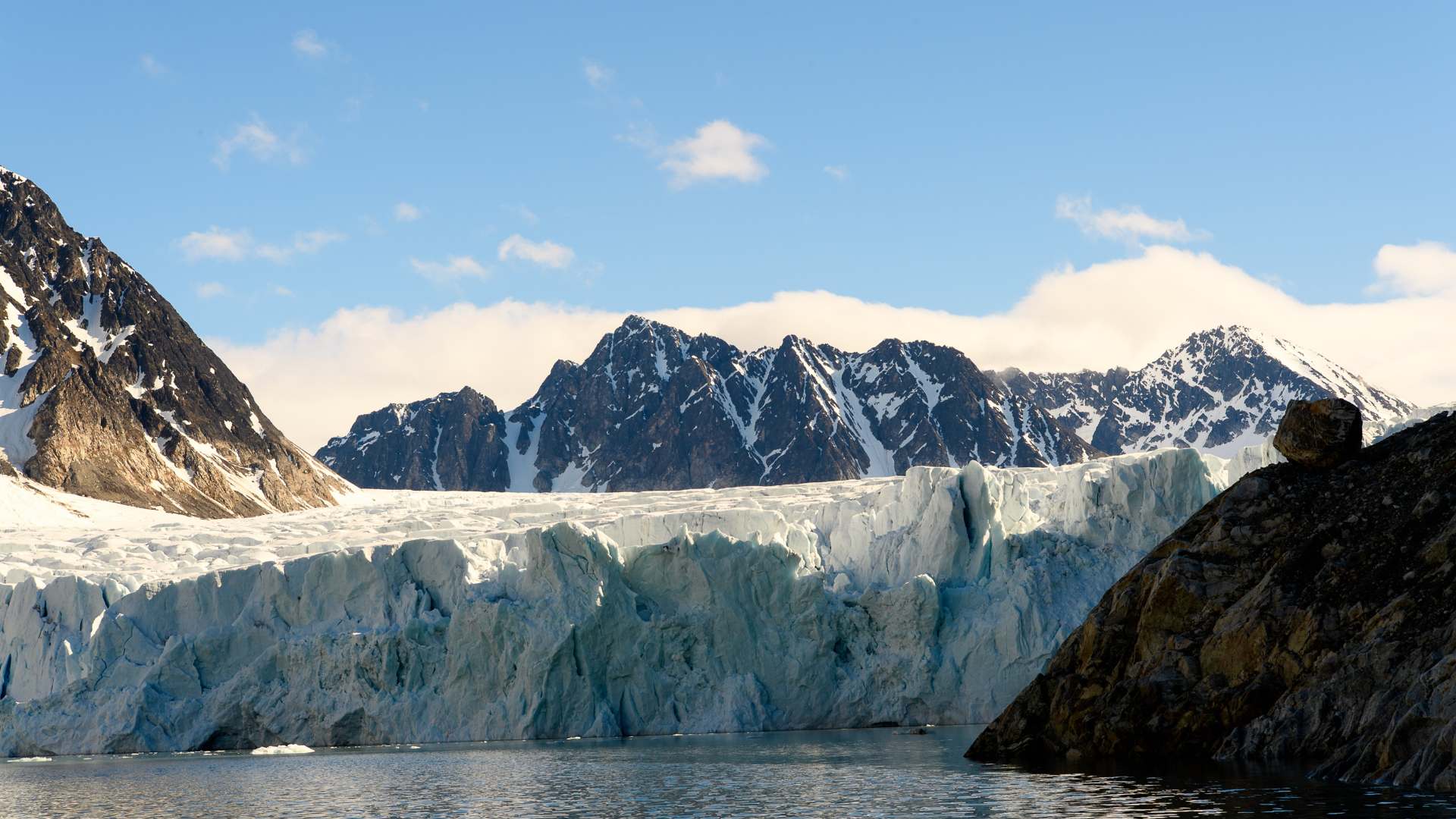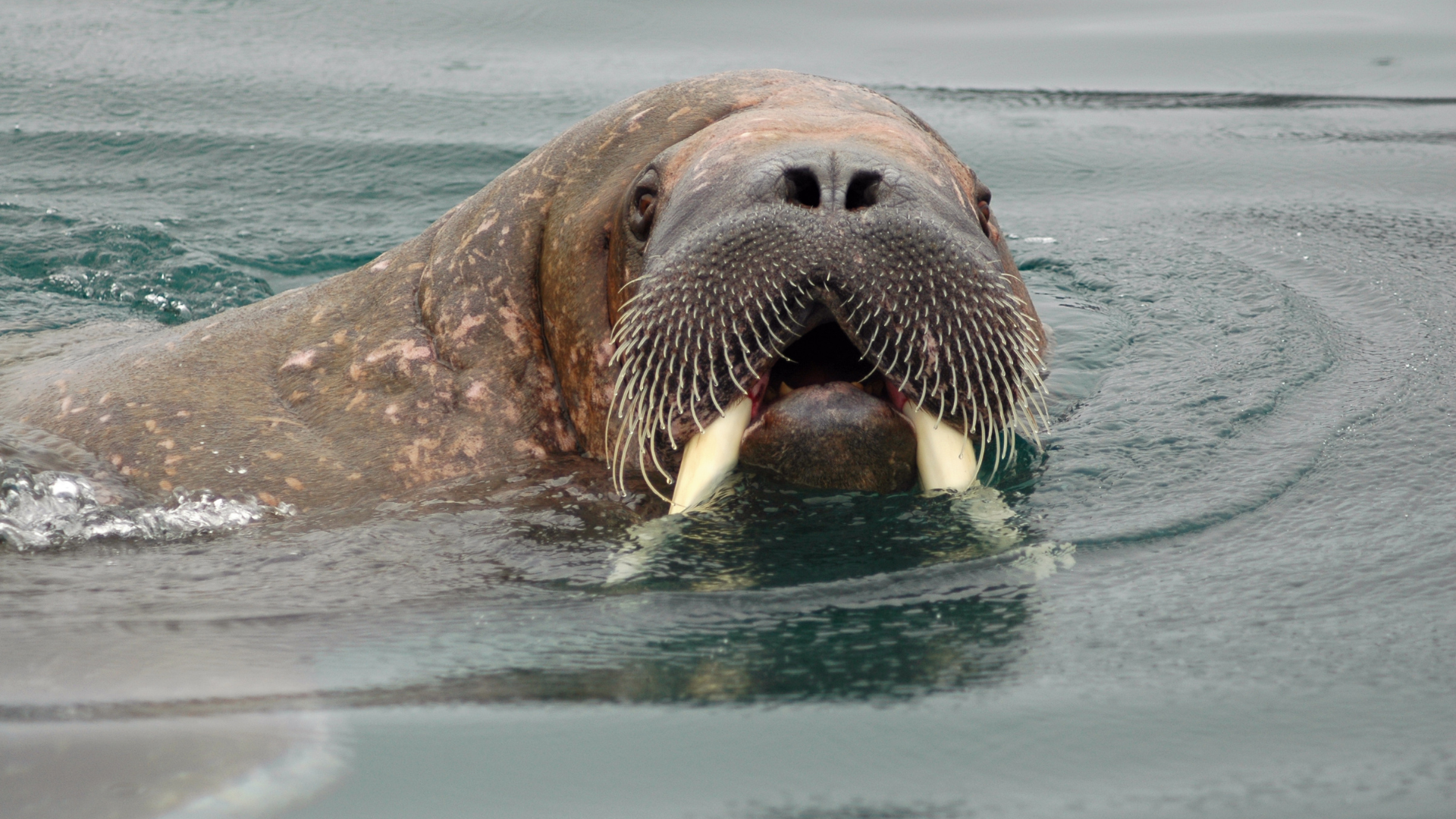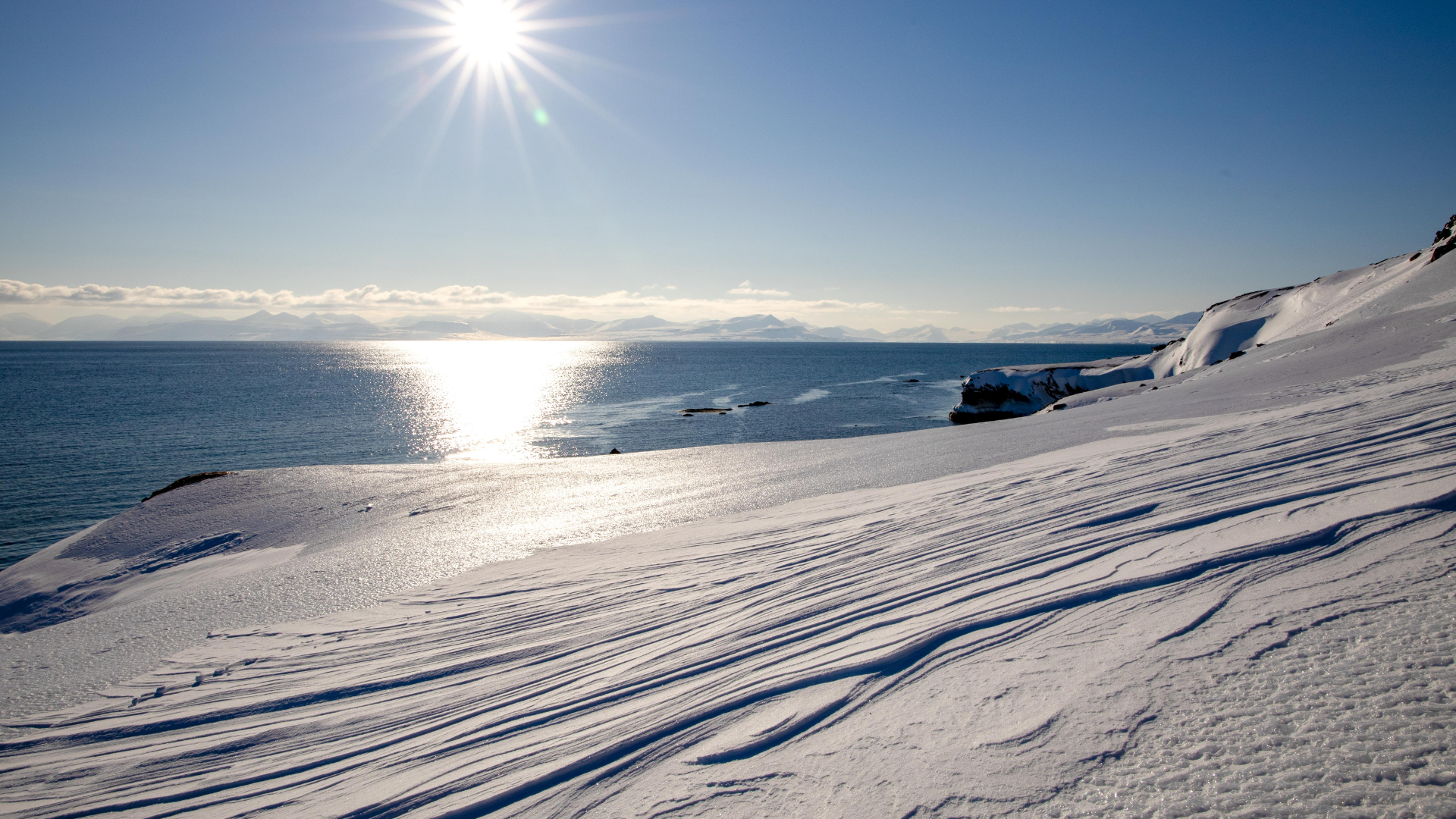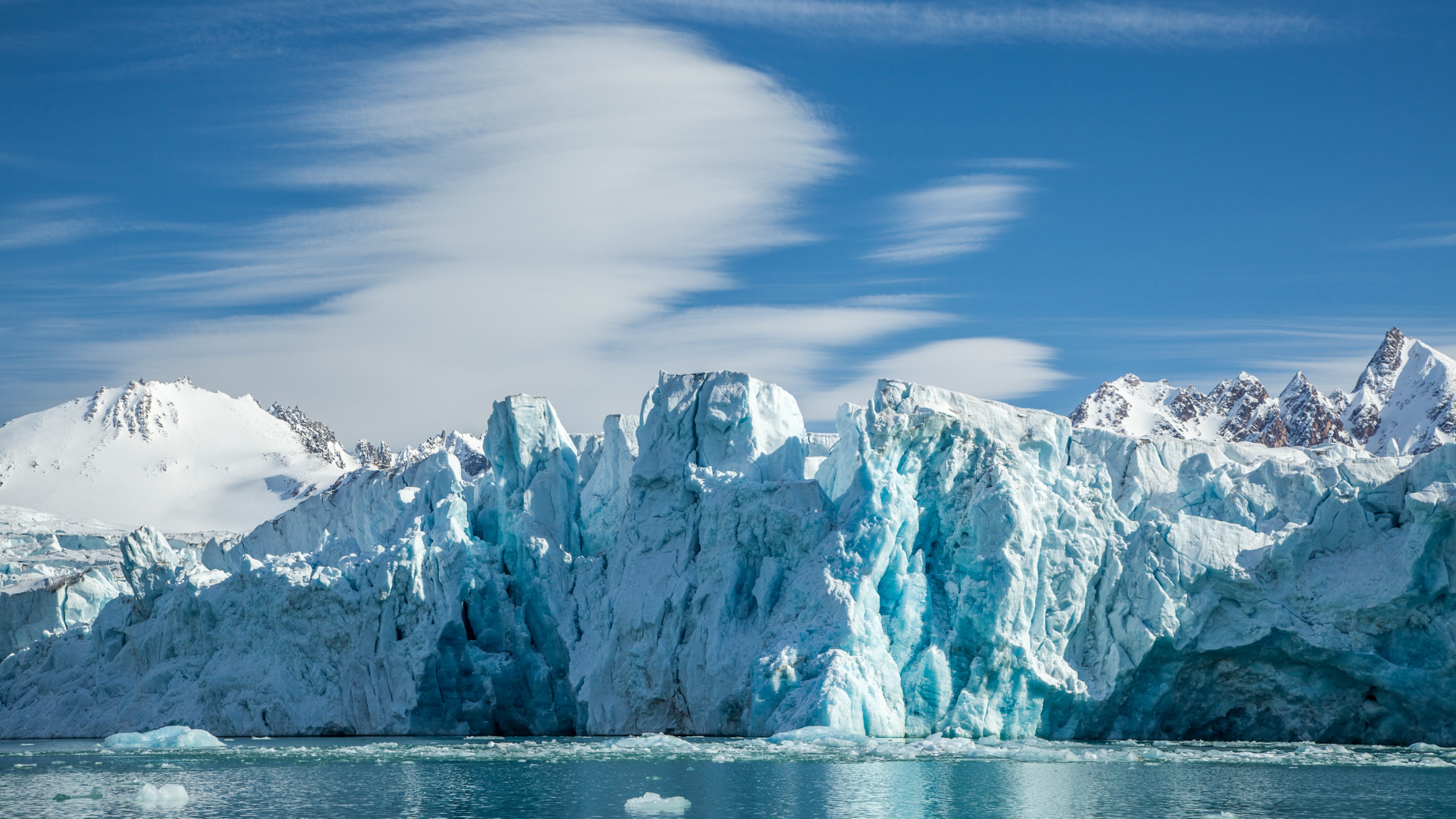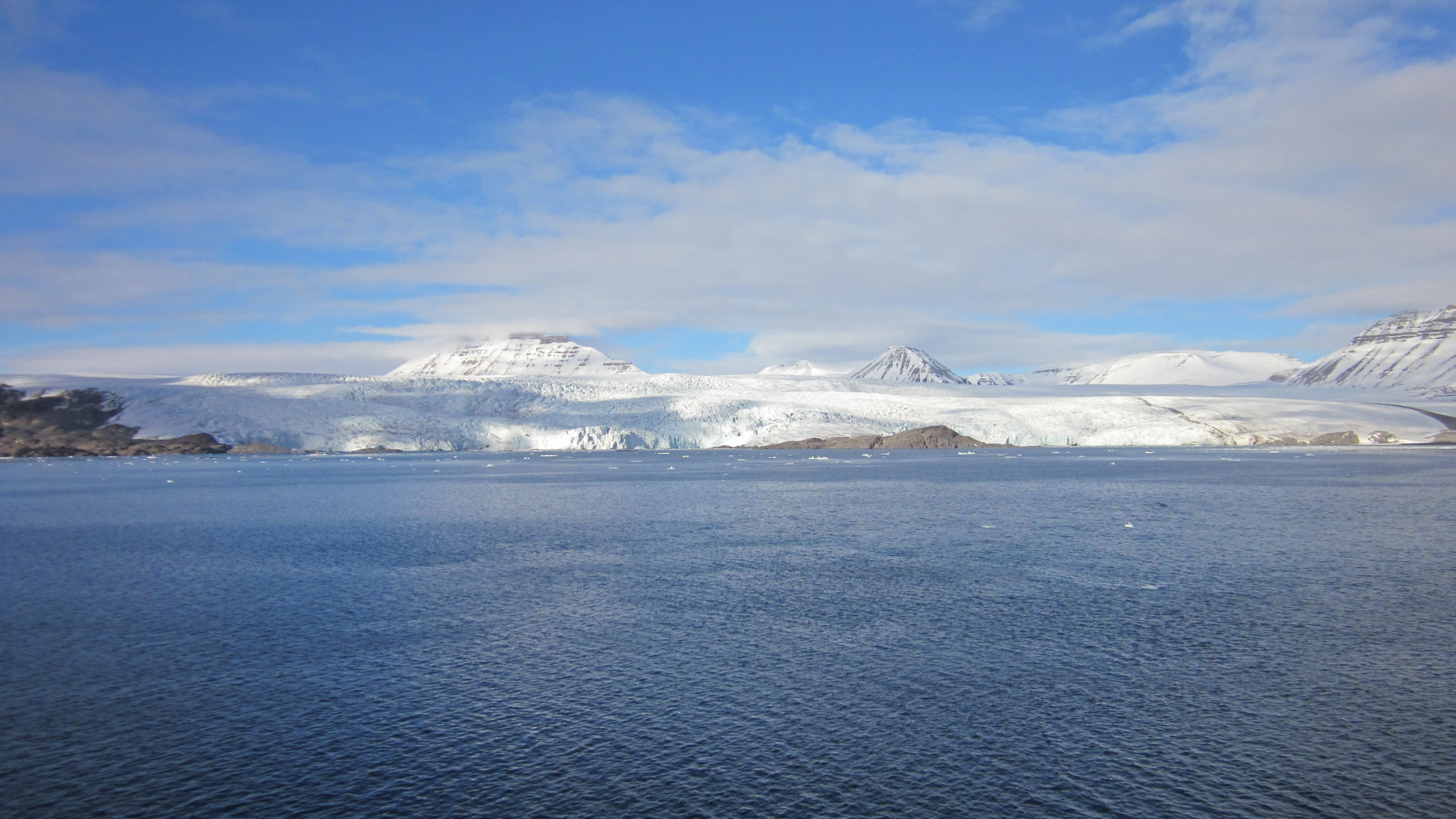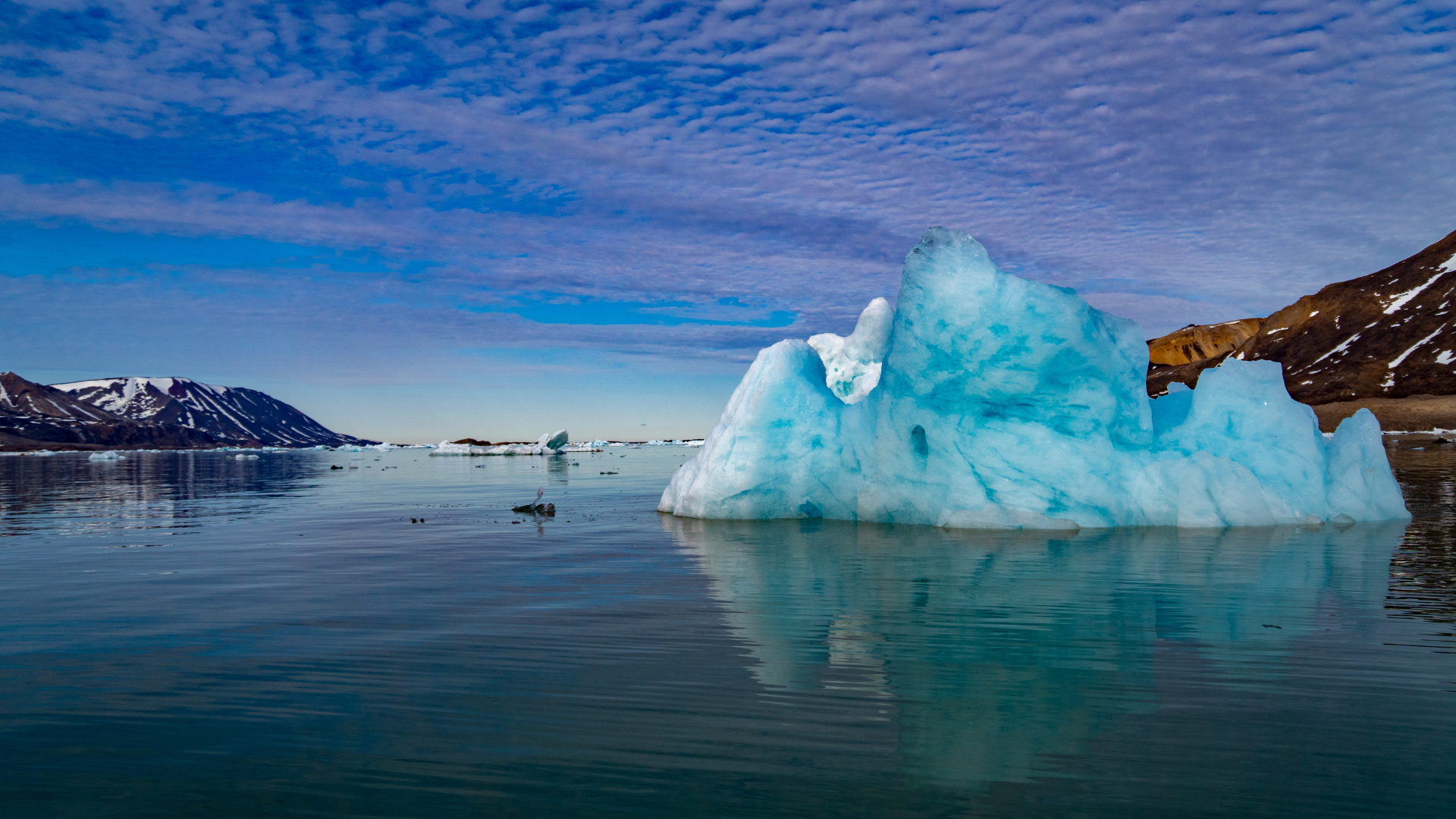It's Time To Explore Places That No One Has Been To
Spitsbergen Nature in October
Spitsbergen Nature in October
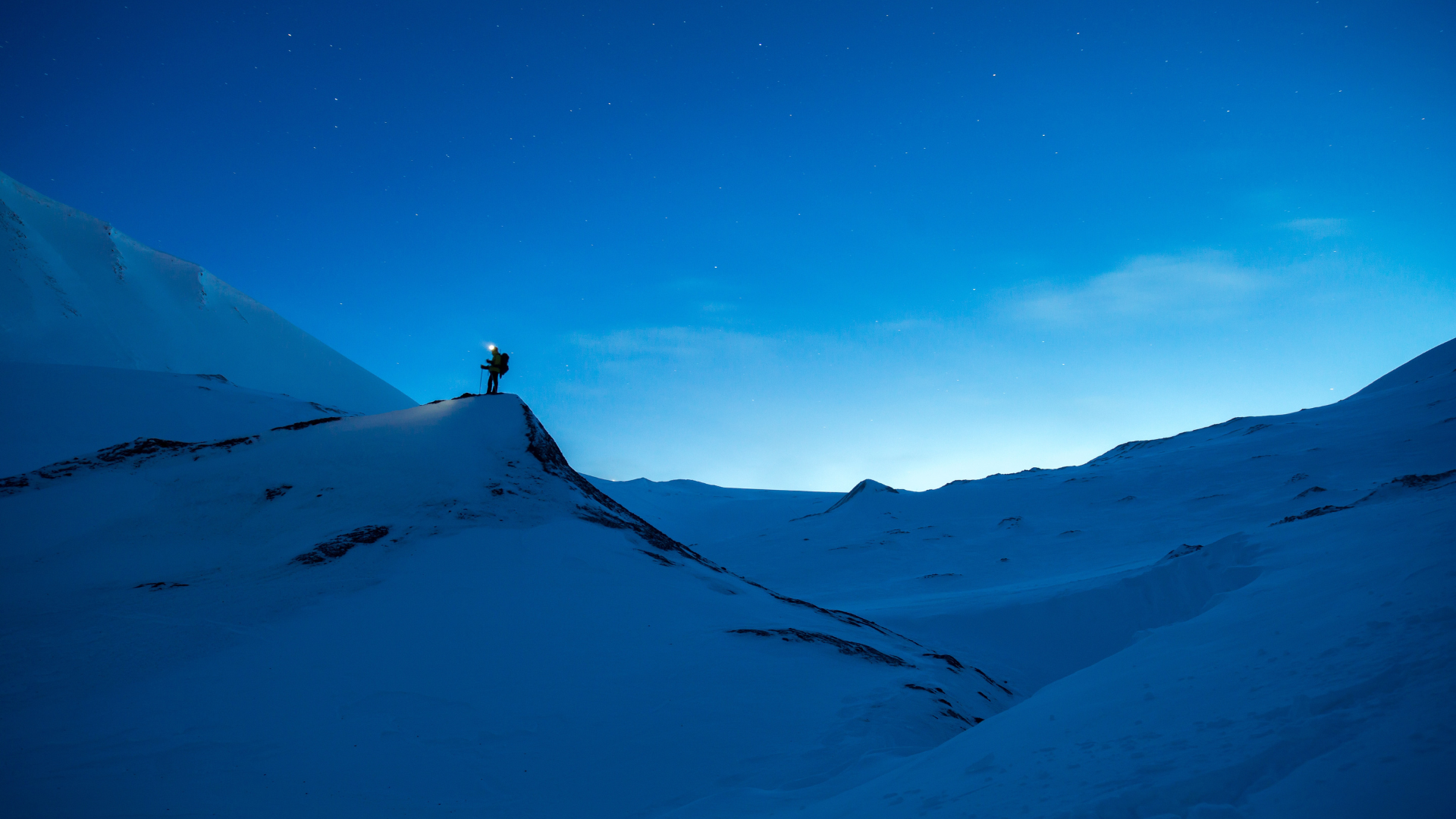
October in Spitsbergen is a time of profound change as autumn fades and the Arctic winter begins to take hold. Snow starts to blanket the landscape, transforming the tundra into a pristine, white expanse. The wildlife becomes more elusive, focusing on survival rather than activity. The daylight hours dwindle, and the northern lights take center stage, painting the night sky with ethereal displays. This period offers a unique perspective on the stark yet captivating transition into one of the harshest seasons on Earth.
The tundra, which was vibrant with greens and golden hues in September, becomes a canvas of icy whites and muted grays. Early snowfalls signal the end of the growing season, burying mosses, lichens, and other hardy Arctic plants beneath a layer of frost. The landscape’s rugged beauty is enhanced by the fresh snowfall, creating a serene and untouched appearance that draws nature enthusiasts and photographers. This stark transformation highlights Spitsbergen's adaptability to the challenges of winter.
Wildlife in October faces the daunting task of preparing for the colder months ahead. Reindeer are still visible, grazing on the remaining vegetation before it becomes entirely inaccessible. Arctic foxes, with their thickening winter coats, scavenge for food, capitalizing on any last opportunities before resources dwindle. Birdlife has largely migrated south, leaving behind a quieter, more introspective wilderness. For wildlife enthusiasts, this is a time to appreciate the resilience of Spitsbergen’s inhabitants as they brace for winter.
The return of longer nights ushers in the northern lights season, one of October’s most enchanting features. The auroras, with their vivid greens and purples, illuminate the sky and reflect off the snowy terrain, creating a magical ambiance. Guided northern lights tours provide visitors with the best chances to witness these celestial displays, often paired with stories about Arctic folklore and the science behind the phenomenon. October’s relative quietness compared to peak tourist seasons makes these experiences even more intimate and memorable.
Outdoor activities in October are shaped by the shifting conditions. Snowshoeing and skiing become possible as snow accumulates, offering new ways to explore the landscape. Glaciers remain accessible for guided tours, where visitors can marvel at their icy formations and learn about the role they play in the Arctic ecosystem. Boat tours, though less frequent, still operate in some areas, providing opportunities to observe marine life and the dramatic coastal scenery.
The fjords, partially framed by snow-dusted mountains, remain a haven for marine life. While whale sightings become less common, seals are still present, lounging on ice floes or swimming near the shorelines. The icy waters take on a deeper blue hue, contrasting beautifully with the whitened landscape. For those venturing onto the fjords, the crisp air and tranquil atmosphere create a serene backdrop for exploration.
The weather in October demands careful preparation. Temperatures often drop below freezing, and the increasing likelihood of snowstorms adds an element of unpredictability. Visitors should equip themselves with insulated layers, waterproof gear, and sturdy footwear to ensure safety and comfort during outdoor excursions. Despite the challenges, the rewards of exploring Spitsbergen in October far outweigh the difficulties, offering an authentic Arctic adventure.
October’s unique position between autumn and winter provides an unparalleled glimpse into Spitsbergen’s ability to adapt and endure. The combination of snow-covered landscapes, northern lights, and the quiet resilience of its wildlife makes this month a deeply rewarding time to visit. For those who appreciate the stark beauty of the Arctic and the serenity of its quieter seasons, October offers a truly unforgettable experience.
Want to travel to Svalbard?
It’s easy, just leave your details here and we will contact you
Sign up to our newsletter
We will get back to you as soon as possible
Please try again later
